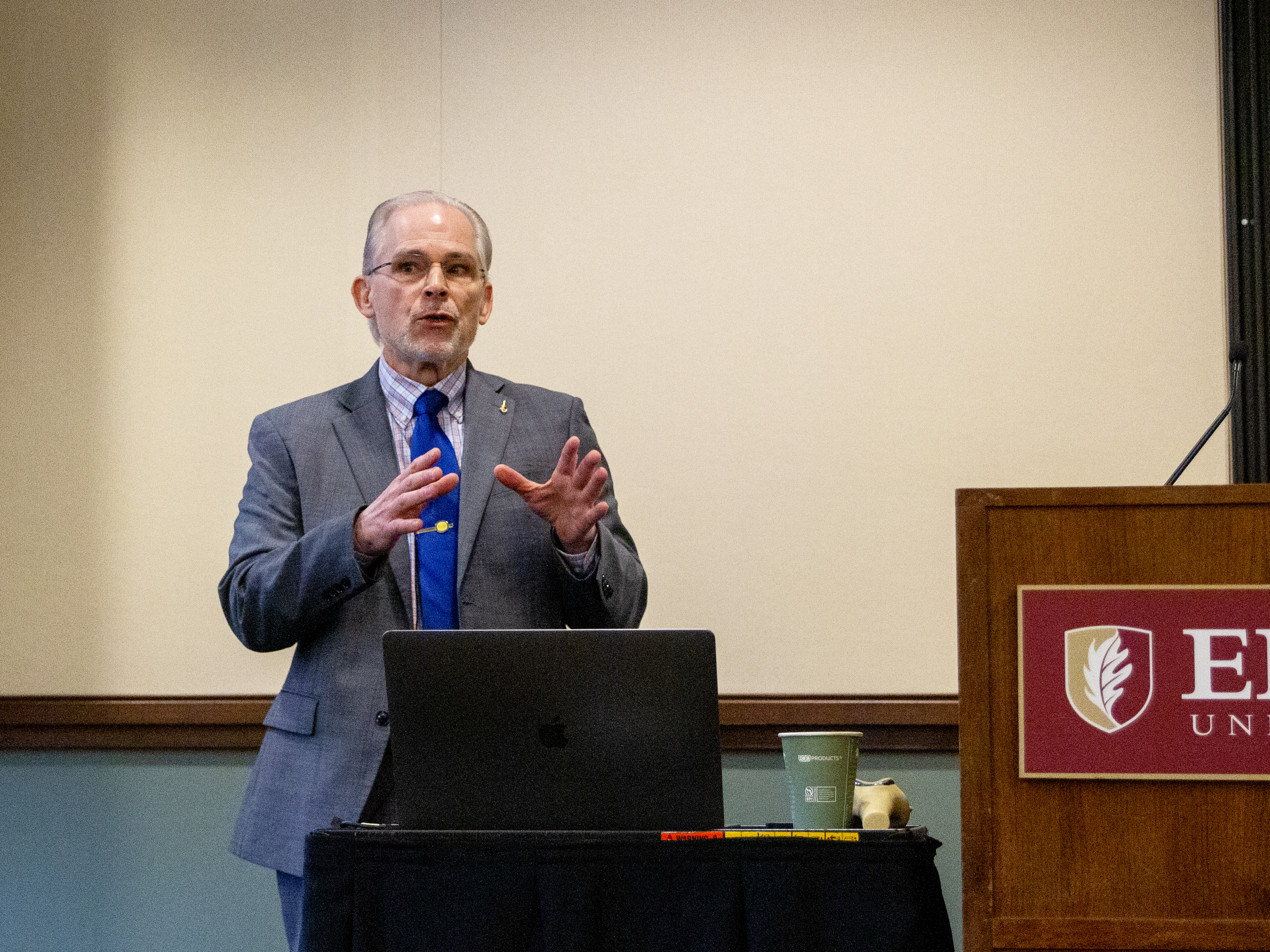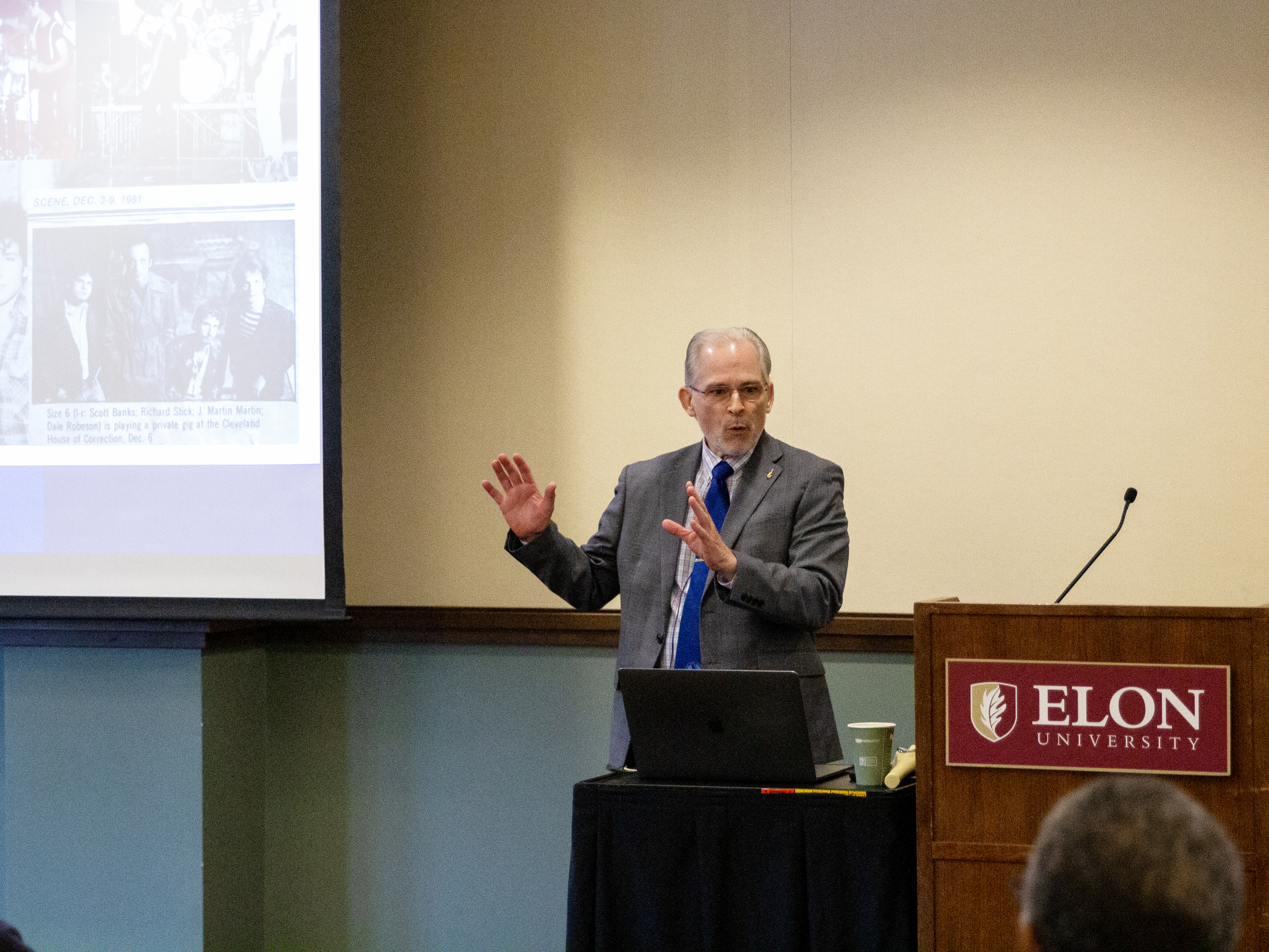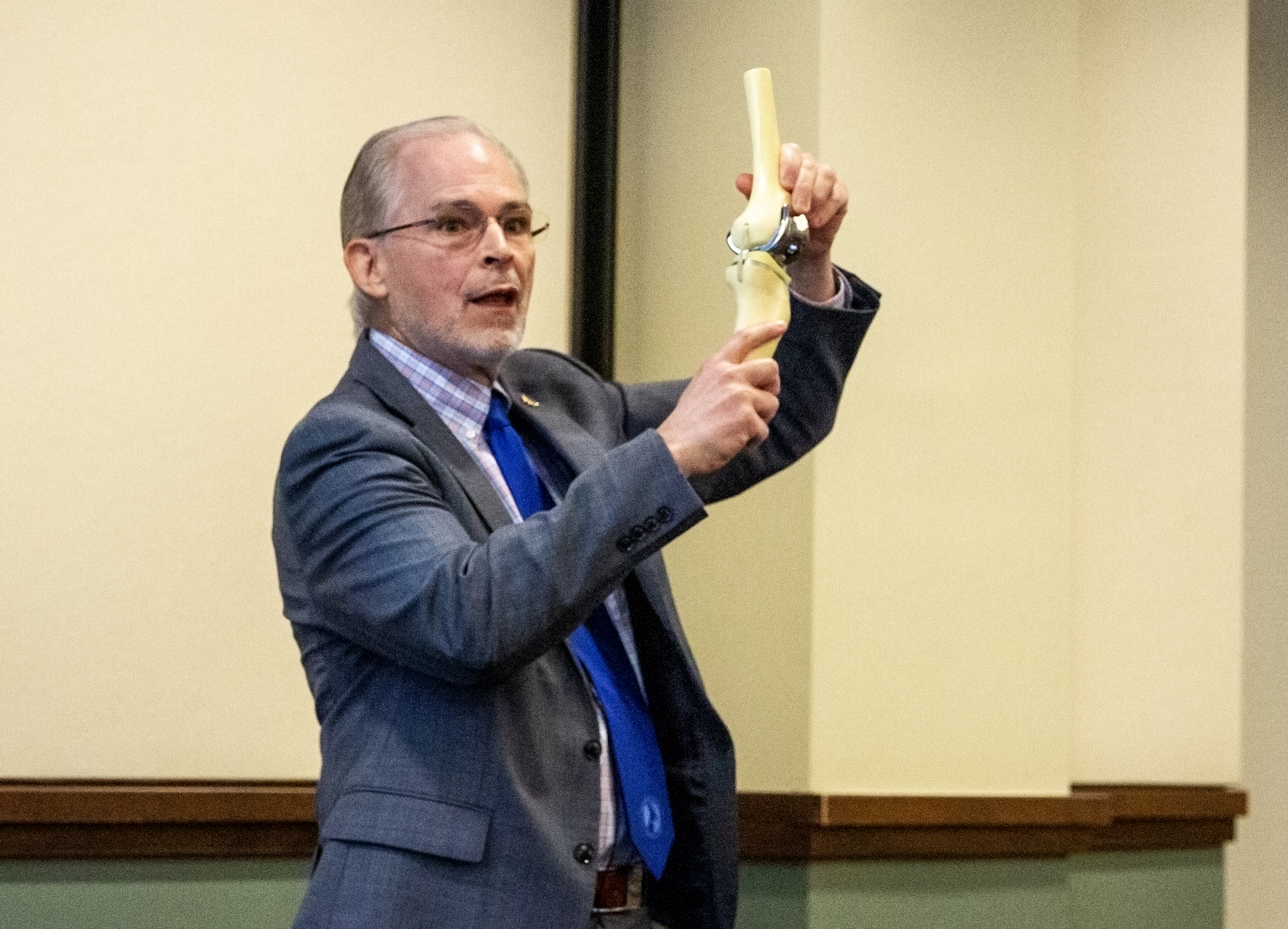Biomedical engineer Scott Arthur Banks detailed the challenges and opportunities ahead in joint replacement and medical technology during the final 2023-24 Voices of Discovery Lecture.
On a mission to improve knee-replacement implants, biomedical engineer Scott Arthur Banks faced setback after setback before a breakthrough emerged from an unlikely source: Shadow puppetry.
Banks delivered the final Voices of Discovery lecture of the academic year, “The Knee Bone is Connected to the Implant! Engineering Treatments for Diseased Joints,” drawing a crowd to Lakeside Meeting Rooms on Thursday. He has researched orthopedic and joint mechanics since his career began in the 1980s and his joint-replacement designs have been implanted in more than 200,000 patients. He is a professor and director of the Gary J. Miller, Ph.D. Orthopaedic Biomechanics Laboratory at the University of Florida.

His first breakthrough began with an obvious yet complex problem. The fit and function of knee implants is crucial to patient recovery and quality of life. Without a way to assess individuals’ joint movement and biomechanics, surgeons were left making educated guesses about their success.
“We couldn’t change the implants or track them in bones, but we needed to perform dynamic observation,” Banks said. Motion-capture technology failed because skin moves differently than the joint beneath. X-rays alone also couldn’t provide understanding of the motion and forces at work in our knees.
But by combining fluoroscopy — video X-rays — with matching superimposed images of the implant device, some geometry and computer modeling, he and Dr. William Andrew Hodge, now at Gardner Orthopedics in Ft. Myers, Florida, developed the first quantitative technique for direct measurement of 3D knee implant motions individualized to patients.
“This is basically fancy shadow puppetry,” he said. “We can wiggle the images of implants around … and know how they are moving relative to each other. So now I can answer my surgeon colleagues’ questions, show them the motion that’s happening and they can adjust their surgical procedure” for individual patients.
Banks also described the innovations that led to the 3D Knee Replacement — which he designed and patented with collaborators to more closely resemble the asymmetrical curvature and motion of our natural joint over traditional implants — and improvements made in a soon-to-be-released version. He has also founded startup companies: Scientific Motion Technologies, which is developing non-surgical methods that alleviate knee pain, and Orthopedic Driven Imaging, to provide dynamic-motion measurement in clinics as a standard pre-surgical assessment.

Breakthroughs and advancements are exciting on their own, but pale in comparison to seeing how they change people’s lives, he said. The first patient to receive a 3D Knee Replacement implant was a 46-year-old hiking guide. She was able to continue her career and 23 years later is still active and enjoying quality of life.
“Talk about motivation,” Banks exclaimed. “Meeting with people like her, where your ‘widget’ had a profound effect on their life: Let me get back into the lab and bring in more young minds to do this work.”
He concluded by offering Elon students advice and encouragement in their academic pursuits.
- Get involved with undergraduate research. The scientific breakthroughs of tomorrow begin with the undergraduate research and mentorship happening today at places like Elon, he said.
- Find mentors who are passionate about their mission and field.
- Find your mission, make a career plan and revisit it every few years to map your trajectory.
“I got involved in research as an undergraduate, and if you haven’t already done that, take the opportunity and find out what’s available,” Banks said. “My mission hasn’t changed, and that’s been critical for me.”
About Voices of Discovery
Voices of Discovery brings preeminent scientists and mathematicians to campus to share their experiences and perspectives with Elon students and the community. Sponsored by Elon College, the College of Arts and Sciences, and Elon University, the annual speaker series is fundamental to creating a science-conscious community and students who graduate as informed, critically thinking citizens.



